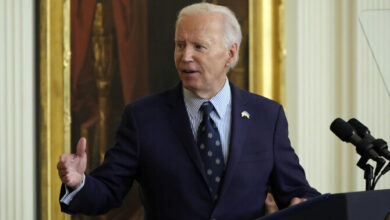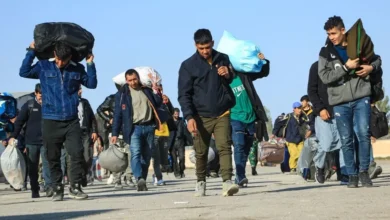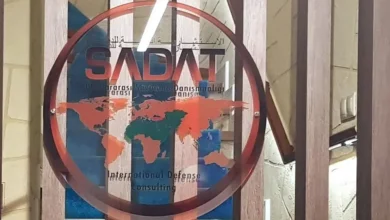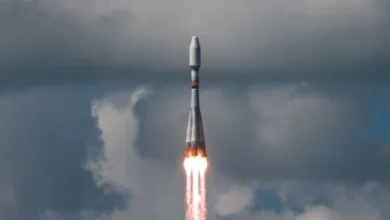Despite rising prices, Pakistan’s love for sugar remains unshaken
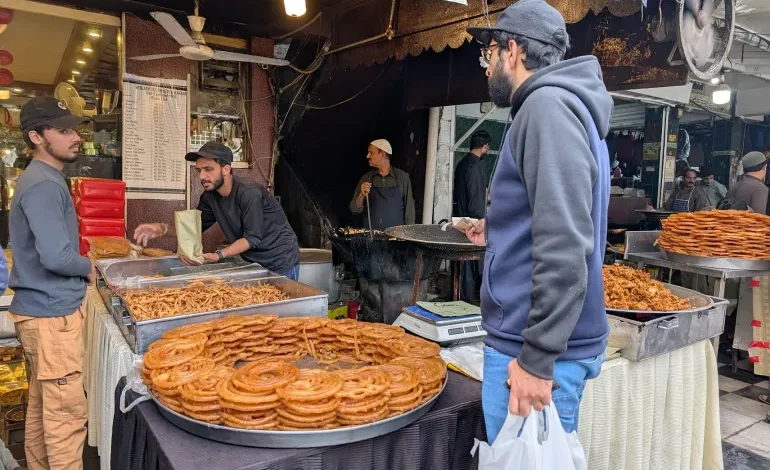
When Ayesha Khan, a mother of four, was buying groceries for her family this week, sugar was high on her shopping list.
A few miles away in the corridors of power, Pakistan’s government and bureaucrats were trying to thrash out a fix for sugar’s soaring prices. But for Khan, buying sugar was a necessity.“It has been almost 20 days since Ramadan began, and this will be the third time I am buying a five-kilogramme bag of sugar for the family,” Khan, who is in her 30s, told Al Jazeera while shopping in an Islamabad market frequented mostly by middle-class customers.
“What can I say? We all have a sweet tooth, and we love our sugary tea and rooh afza!” she added, laughing, referring to the popular rose-flavoured beverage.
General inflation in the country has trended downwards over the past year, with inflation crashing from 23.06 percent in February 2024 to 1.5 percent in February this year. This was after inflation had reached a record high of 38 percent in May 2023.However, over the past few months, the price of sugar has increased by nearly 22 percent, rising from 140 rupees per kilogramme ($0.50) in January to 171 rupees per kilogramme ($0.61) in the second week of March, according to Pakistan’s Bureau of Statistics.But in the markets of Islamabad, many customers said that the increase in sugar prices was only a pinch, not a punch, to their wallets, adding that the stability of prices for other key commodities such as milk, wheat and rice helped them balance their budgets.
Mohammad Shehzad, 27, was buying jalebi – a spiral-shaped South Asian dessert made from all-purpose flour and soaked in hot sugar syrup.
He said that while Ramadan usually brought a slight increase in the prices of nearly every commodity, things had been worse in previous years.
“We do love to add sugar to our tea and desserts, of course, but because our overall expenditure is under control, the increase in sugar prices has not hurt us too much,” he told Al Jazeera while placing an order for three kilogrammes of jalebi, sold for 650 rupees ($2.32) per kilogramme, for an iftar dinner at his house.Ramadan, with its daily rituals of suhoor and iftar — the predawn and post-sunset meals, respectively — often brings a slightly higher consumption of various food items.
Wajid Mehmood, the manager of Shikarpuri Sweets, the dessert shop where Shehzad was buying jalebi from, said that while the overall input cost had increased due to rising sugar prices, it had mainly affected profit margins.“We purchase about 10 to 12 bags per day, each weighing 50kg, for our six branches. One bag currently costs us 8,500 rupees ($30). Before Ramadan, it cost us 7,800 rupees ($27) per bag,” he said.However, Mehmood said that the shop owners had decided not to pass the increased cost on to customers during Ramadan.
“Maybe the price will be raised a little at Eid,” he said, referring to the festive period that follows the month of fasting.
For some, like Muhammad Zahid, a juice vendor who has run his roadside stall for the past 32 years, pricing depends on a combination of factors, including increases in the prices of both sugar and fruits, such as apples, bananas and oranges. During Ramadan, he has no customers during the day.Deputy Prime Minister Ishaq Dar stated earlier this week that the government would ensure the price of sugar does not exceed 164 rupees (0.59) per kilogramme.
The gradual increase in sugar prices has been blamed on hoarders, who bought large quantities of sugar earlier when prices ranged between 140 ($0.50) and 150 rupees ($0.54) per kilogramme.
Pakistan’s total sugar production for the current financial year, which will end in July 2025, is forecasted at 6.8 million tonnes, while consumption is expected to be about 6.7 million tonnes.
Mohammad Rashid, a grocery shop owner in Islamabad, said his shop was currently selling sugar at 168 rupees (0.60) per kilogramme, an increase of 16 rupees ($0.06) compared with before Ramadan.
Blaming an “artificial shortage” in the market, Rashid said that there had been a slight reduction in sugar sales.
“We used to sell close to 16 to 18 bags of 50kg each per day. But with Ramadan and the inflated price, our sales have dropped to roughly 12 to 14 bags per day,” he told Al Jazeera.
Meanwhile, Pervez Kiran, who has run his grocery store in Karachi for the past three decades, said that despite the price increase, sugar consumption was unlikely to be significantly affected.
“It is a non-perishable item, unlike milk, vegetables or fruits, so that helps. Secondly, people here just love sugar, even if it kills them. Our daily sales range between 80 and 100kg per day, and they have remained the same, whether we sell sugar at 150 rupees ($0.54) per kilogramme or 170 rupees ($0.61) per kilogramme,” he told Al Jazeera over the phone.
